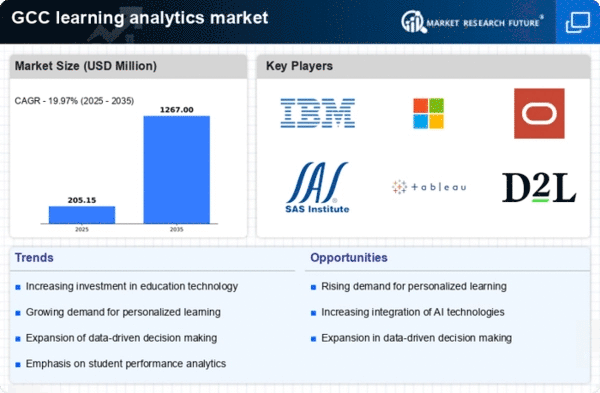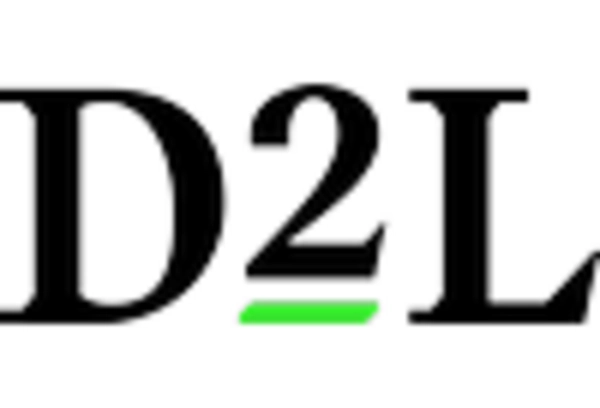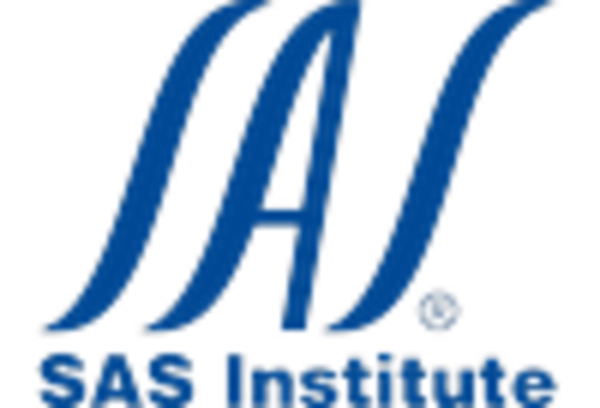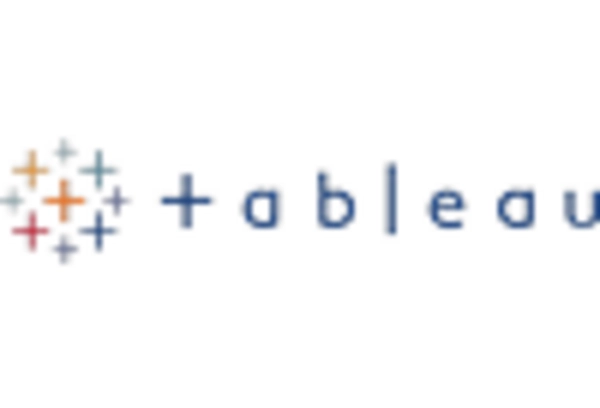Government Initiatives and Funding
Government initiatives in the GCC are increasingly supporting the development and implementation of learning analytics solutions. Various educational policies are being introduced to enhance the quality of education through technology integration. For instance, substantial funding is being allocated to digital transformation projects within educational institutions. This financial backing is aimed at fostering innovation and encouraging the adoption of learning analytics tools. As a result, the learning analytics market is expected to benefit from these initiatives, with an anticipated increase in investment reaching upwards of $500 million by 2027. Such government support not only facilitates the growth of the market but also ensures that educational institutions are equipped with the necessary resources to implement effective analytics solutions.
Rising Demand for Data-Driven Insights
The learning analytics market is experiencing a notable surge in demand for data-driven insights across educational institutions in the GCC. This trend is largely attributed to the increasing emphasis on improving student outcomes and enhancing teaching methodologies. Institutions are leveraging analytics to identify learning patterns, assess student performance, and tailor educational experiences. According to recent estimates, the market is projected to grow at a CAGR of approximately 25% over the next five years. This growth is indicative of a broader shift towards evidence-based decision-making in education, where data analytics plays a crucial role in shaping curriculum and instructional strategies. As educational stakeholders recognize the value of actionable insights, the learning analytics market is likely to expand significantly, fostering a culture of continuous improvement in educational practices.
Growing Adoption of E-Learning Platforms
The proliferation of e-learning platforms in the GCC is significantly influencing the learning analytics market. As educational institutions and corporate entities increasingly adopt online learning solutions, the need for analytics to monitor and enhance learning experiences becomes paramount. E-learning platforms generate vast amounts of data, which can be analyzed to improve course content, engagement levels, and overall learner satisfaction. Recent data suggests that the e-learning market in the GCC is expected to reach $1 billion by 2026, further driving the demand for sophisticated analytics tools. Consequently, the learning analytics market is poised for growth as institutions seek to harness the power of data to optimize their e-learning offerings and ensure effective learning outcomes.
Integration of Learning Management Systems
The integration of learning management systems (LMS) with analytics capabilities is becoming a critical driver for the learning analytics market in the GCC. As educational institutions seek to streamline their operations and enhance the learning experience, the demand for LMS that incorporate robust analytics features is on the rise. These systems enable educators to track student progress, assess learning outcomes, and identify areas for improvement. The market for LMS in the GCC is projected to grow significantly, with estimates suggesting a value of $300 million by 2025. This growth is likely to propel the learning analytics market forward, as institutions increasingly recognize the value of combining LMS with analytics to create a comprehensive educational ecosystem that supports data-driven decision-making.
Emphasis on Student-Centric Learning Approaches
There is a growing emphasis on student-centric learning approaches within the GCC, which is positively impacting the learning analytics market. Educational institutions are increasingly recognizing the importance of tailoring learning experiences to meet individual student needs. This shift is prompting the adoption of analytics tools that provide insights into student preferences, learning styles, and performance metrics. By leveraging these insights, educators can create personalized learning pathways that enhance student engagement and achievement. The market is likely to see a rise in demand for analytics solutions that support this trend, as institutions strive to foster an inclusive and adaptive learning environment. This focus on student-centricity is expected to drive innovation and investment in the learning analytics market.
















